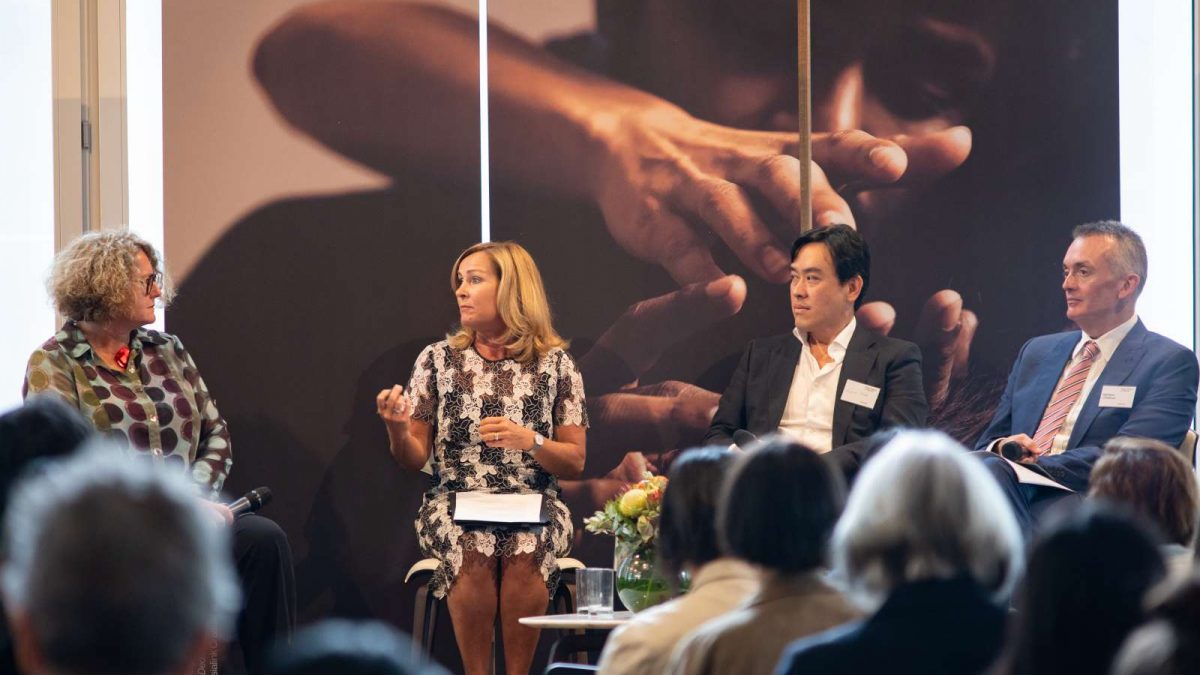Soft Power and Cultural Diplomacy: The need has rarely been greater

On 3 March 2020, Asialink Arts held an international cross-sectoral conference in Melbourne as part of AsiaTOPA to debate cultural diplomacy, creative exchange and the power of artistic influence across the Asia Pacific. Louise Partos, Artback NT Executive Officer, was invited to contribute to this forum entitled Public Displays of Affection: How Can Artists Rebrand Soft Power? and to reflect upon experiences within intercultural artistic exchange.
In my role I am fortunate to be able to work with a variety of individuals and communities, and in a variety of ways. I do this because I fundamentally believe that it is the hope and the humanity of artists that actually builds long term relationships between People.
And, I also believe that the underlying truth is that our reputation as a Country is the most critically important context for everything else that happens. That business, tourism and politics – all these outcomes hang in the balance on the strength of the reputation we have with others – many of whom are yet to truly know us.
Louise outlined a range of examples where she had been privileged to witness and experience the way in which Artists:
- Can open up dialogue, share experience and realise the commonality of shared values and histories
- How they can promote good will, tolerance and understanding
- How they can provide a bridge between Nations
In 2013 she received an Asialink Residency to co-present the Baucau Music and Art Festival in partnership with Afalyca Arts, a community run organisation in Baucau, Timor Leste’s second largest city.
This opportunity sprang from one of those moments where someone in Australia has a mad idea (and that would be me!) and someone in Timor Leste has a dream [Marqy da Costa]. We accidentally meet and discover that we have a common belief in the power of the arts to enable dynamic and cohesive communities; that we share a vision.
The Baucau Festival project had been building over years and due to Louise setting up regular visits in 2011 and 2012, she had built up deep and abiding relationships with individuals and community. Yet suddenly, in late 2012 and early 2013, the first public revelations about the 2004 Australia–East Timor spying scandal emerged and these had a significant impact upon Festival preparations.
I had always naively operated in Timor Leste in what I thought was an individual capacity. I had not realised at that time how much I was actually representing my country. A nation which had recently caused great offence and therefore, as an Australian, I was responsible and had to personally answer for it.
The Festival provided an opportunity for connection and cultural diplomacy worked at a time when other forms of interaction were simply not possible. This was not the work of politicians, or speech makers. It was the work of Artists and Arts Workers; of Communities and Individuals and it made a very real difference to Australian / Timorese relationships in Baucau at that time.
More recently, Louise spoke to Artback NT’s work in Taiwan where she had initiated and then facilitated a number of collaborations between Indigenous Taiwanese and Indigenous Northern Territory Artists.
Louise believes that Artback NT, as a Territory organisation, is situated in a broader region and is perfectly positioned to look up and around, not simply down to the rest of the Country. She also suggests that cultural outreach to regional populations, including Indigenous communities, gives Australia the opportunity to positively influence and build emotional connections between Peoples.
In conclusion she calls to:
Governments, institutions and partners to ensure that the artists themselves, and not simply art work, are actually seen as an integral part of planning and budgets.
Because what artists bring to cultural exchanges, to soft power initiatives is:
- life
- questions, they open up doors and enable conversations
- glorious coincidences, humour and knowledge.
This is the opportunity we have for connection and one we often ignore or undervalue at our peril.
An artist in the room provides a bridge between Cultures; between Peoples, they:
- humanise
- actualise policy
- make the difference on the ground.
Listen to Louise’s full lecture The need has rarely been greater and other speakers.